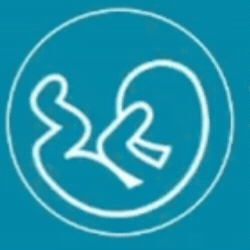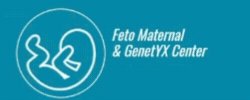Gestational diabetes mellitus (GDM) is a common condition affecting pregnant women. This informative blog post delves into everything you need to know about gestational diabetes, from understanding its causes and risk factors to diagnosis, management strategies, and potential impacts on your baby.
What is Gestational Diabetes?
Gestational diabetes mellitus (GDM) refers to a condition where a woman develops high blood sugar (glucose) levels for the first time during pregnancy. Normally, the body produces insulin, a hormone that helps cells convert blood glucose into energy. However, during pregnancy, hormonal changes can create insulin resistance, leading to high blood sugar levels. Untreated GDM can pose risks for both mother and baby, making early diagnosis and management crucial. Gestational diabetes occurs when the body cannot produce enough insulin during pregnancy, leading to elevated blood sugar levels.
Risk Factors for Gestational Diabetes
Several factors can increase a woman’s risk of developing GDM:
- Age: Women over 25 years old are at higher risk.
- Weight: Obesity (BMI > 25) is a significant risk factor.
- Physical Activity: A sedentary lifestyle increases risk.
- Family History: Having a close family member with diabetes raises your risk.
- Previous Pregnancy: Delivering a baby weighing over 9 pounds (macrosomia) or a history of gestational diabetes increases risk.
- Other Conditions: Polycystic ovary syndrome (PCOS), high blood pressure, metabolic syndrome, and smoking contribute to risk.
- Ethnicity: Certain ethnicities may have a higher risk.

How Does Gestational Diabetes Develop?
During pregnancy, hormonal changes occur to support fetal development. These include increased levels of estrogen, progesterone, and human placental lactogen. While these hormones promote healthy pregnancy, they also contribute to insulin resistance, making it harder for cells to utilize blood sugar effectively.
Normally, the pancreas increases insulin production to compensate. However, in women predisposed to diabetes, the pancreas may not produce enough insulin, leading to high blood sugar levels and GDM.
Diagnosing Gestational Diabetes
Typically, between 24-28 weeks of pregnancy, all women are offered a glucose tolerance test (either one-step or two-step) to screen for GDM. The specific test used depends on medical guidelines and your doctor’s recommendation.
The tests involve measuring blood sugar levels after consuming a glucose drink. Depending on the results, your doctor may recommend self-monitoring of blood sugar levels and establish specific target ranges.
Gestational Diabetes and Your Baby
Untreated or poorly controlled GDM can pose risks for your baby. High blood sugar levels can pass through the placenta, causing the baby’s pancreas to produce extra insulin. This can lead to:
- Macrosomia: A large baby, which can increase the risk of birth complications.
- Low Blood Sugar (Hypoglycemia): Newborns of mothers with GDM may experience low blood sugar levels after birth.
- Breathing Problems: High blood sugar levels may affect the baby’s lung development.
Managing Gestational Diabetes
Fortunately, gestational diabetes can be effectively managed with a combination of strategies:
- Blood Sugar Monitoring: Regular monitoring (typically four times a day) allows you and your doctor to track blood sugar levels and make adjustments as needed.
- Dietary Changes: A healthy diet emphasizing whole grains, fruits, vegetables, and lean protein is crucial. A registered dietitian can help you create a personalized meal plan.
- Exercise: Moderate physical activity helps control blood sugar levels. Walking, swimming, and cycling are excellent options.
- Medication: If diet and exercise aren’t enough to manage blood sugar, insulin injections might be necessary.
Diet and Gestational Diabetes
A balanced, healthy diet is the cornerstone of managing gestational diabetes. Here are some key dietary tips:
- Eat regularly: Three small meals and 2-3 snacks throughout the day maintain stable blood sugar levels.
- Avoid skipping meals or snacks: Consistency is vital.
- Carbohydrates: Aim for 40-45% of calories from complex carbohydrates like whole grains.
- Protein and Fat: Include lean protein and healthy fats in your diet to support overall nutrition and satiety.
- Hydration: Drink plenty of water throughout the day to stay hydrated and help regulate blood sugar levels.
Psychological Impact and Support
Dealing with gestational diabetes can be stressful and emotionally challenging. It’s essential to seek support from healthcare providers, family, and friends. Joining a support group for women with gestational diabetes can also provide valuable insights and emotional encouragement.
Long-term Health Considerations
Women who develop gestational diabetes are at higher risk of developing type 2 diabetes later in life. Postpartum follow-up is crucial to monitor blood sugar levels and implement lifestyle changes to reduce this risk. Breastfeeding can also help lower the risk of developing type 2 diabetes.
Preventing Gestational Diabetes in Future Pregnancies
If you’ve had gestational diabetes in a previous pregnancy, you can take steps to reduce the risk in future pregnancies:
- Maintain a Healthy Weight: Aim for a healthy pre-pregnancy weight.
- Healthy Diet: Continue following a balanced diet.
- Regular Exercise: Stay physically active.
- Monitor Blood Sugar: Keep an eye on your blood sugar levels, especially if planning another pregnancy.
Gestational diabetes is a manageable condition with proper care and lifestyle adjustments. By understanding the risks, adhering to a healthy diet, exercising regularly, and following medical advice, you can ensure a healthy pregnancy and reduce complications for both you and your baby.
At Feto Maternal & GenetYX Center in Dubai, we are dedicated to providing comprehensive care for women with gestational diabetes. Our team of experts collaborates to develop personalized care plans tailored to your unique needs. Contact us today to schedule a consultation and take proactive steps toward a healthy pregnancy journey.
At FMGC, we understand the emotional and physical toll of pregnancies. Our team of best obstetrics gynecologists are committed to providing compassionate care and comprehensive support to help you through this blessed time. If you or a loved one is expecting, please reach out to us for expert care and guidance.
Contact Us: Feto Maternal & GenetYX Center Dubai, UAE
Follow Us on Social Media: Facebook: FMGC Facebook
Instagram: FMGC Instagram
LinkedIn: FMGC LinkedIn
Twitter: FMGC Twitter

